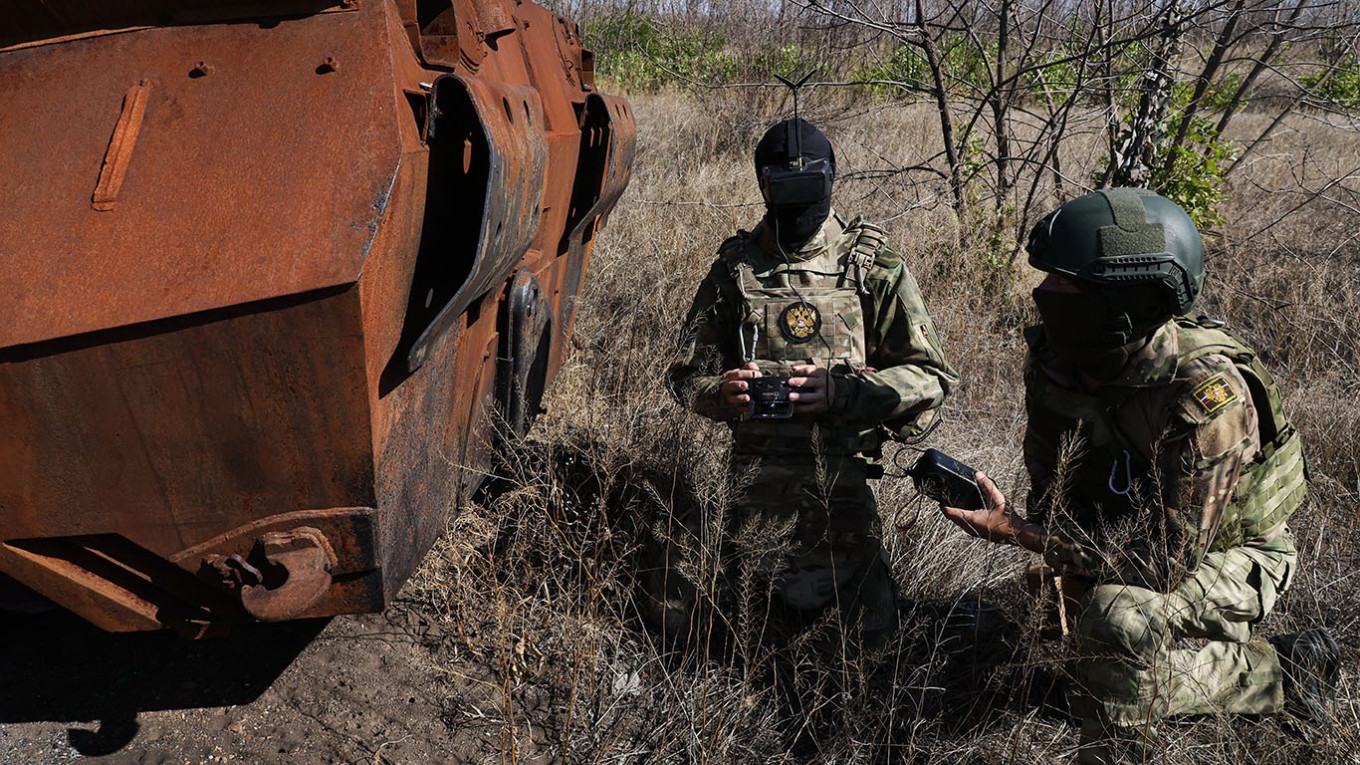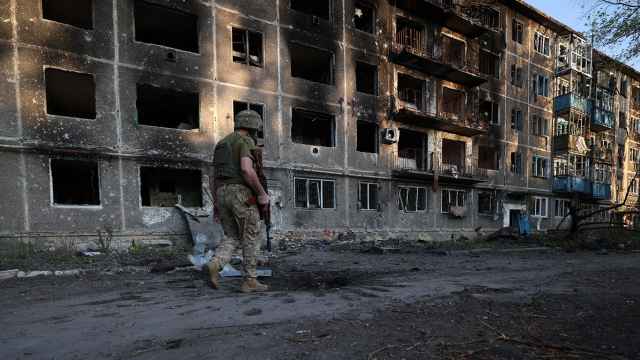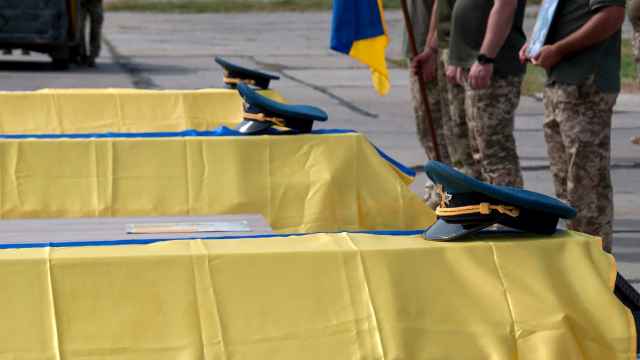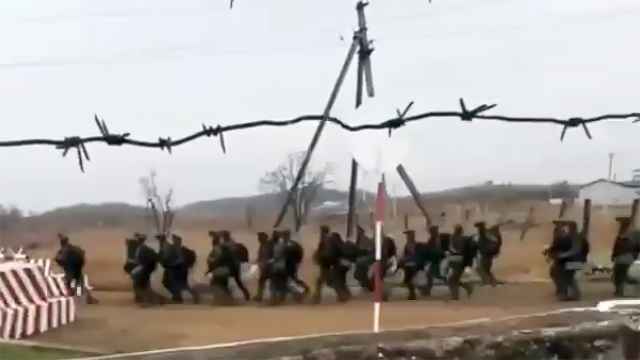Russia's 2025 summer offensive ended in a strategic defeat for the Kremlin. Despite outnumbering the Armed Forces of Ukraine by three to sixfold in certain areas, it only achieved limited tactical gains. Moscow is now trying to compensate for the failures of the summer months by intensifying combat operations in the fall, revising its tactical approach and regrouping forces.
Despite the obvious failure of the offensive campaign, President Vladimir Putin continues to maintain that Russia is winning and to push for Ukraine to cede territory. At a meeting with the Defense Ministry top brass on Oct. 7, he claimed that Ukrainian forces were retreating along the entire line of contact, revealing how detached he is from the reality on the ground.
The Kremlin appears to believe that Russia can hold out longer than the West and Ukraine and survive a war of attrition. However, Kyiv is not only holding its ground on the front lines, containing the superior forces of Russia, but is also taking active measures to reduce Russia's military and economic capabilities.
Thus, the Russian command has faced the dilemma of how to effectively counter Ukrainian long-range strikes. If Russia's size was previously an advantage, the expansion of Ukrainian strikes has turned it into a disadvantage. Moscow is unable to protect the entire territory of the Russian Federation from Ukrainian drones and missiles. Air defense systems and mobile fire groups are concentrated in border regions and in regions around the capital, leaving oil refineries, fossil fuel infrastructure, defense industry facilities and military targets exposed.
According to the Commander-in-Chief of the Armed Forces of Ukraine, Oleksandr Syrskyi, Ukrainian drones struck more than 60 targets in Russia in August and 40 in September, including at least 26 targets related to the Russian oil and gas sector. Ukraine’s Oct. 7 drone strike on the Tyumen oil refinery, 2,000 kilometers from the border, shows that even the industrial heartland of the Urals is no longer safe.
The Kremlin will try to compensate for its failures and demonstrate at least partial results before the onset of cold weather. Ukrainian President Volodymyr Zelensky said that the Russian command had focused its main efforts on capturing Pokrovsk, which has become a central element of Russia's strategy in Donbas.
In general, the Kremlin's plans for the fall are a continuation of the plans from earlier in the year. According to the deputy head of the presidential administration, Moscow plans to expand the occupation zone in eastern Ukraine by the end of 2025 and completely capture the Donetsk and Luhansk regions. By the end of 2026, it plans to capture all of Ukraine on the left bank of the Dnieper, depriving Ukraine of access to the Black Sea.
Currently, the Russians continue to transfer and concentrate military units toward Zaporizhzhia and Donetsk, apparently preparing for the final battle for Donbas. And although Moscow is trying with all its might to achieve its goal, at the current pace of advancement and in the best-case scenario, it could take years for Russia to achieve its objectives.
Against the backdrop of events on the front lines, the Kremlin is also betting on terrorizing civilians in the fall and winter. Since the end of August, Russian drones have been targeting energy and gas transport facilities in frontline cities. This tactic continued through October with strikes against civilian infrastructure, including railway stations and energy facilities in border regions.
In response, Ukraine has launched several strikes on energy infrastructure in Belgorod and the Bryansk region, causing power outages. It should be noted that Kyiv warned Moscow about these countermeasures in response to the continuation of Russia's criminal strikes on civilian infrastructure.
The events of this fall, including hybrid aggression against European countries, also clearly demonstrated that the Kremlin is not ready for genuine peace talks and aims to continue the war. The recent statement by Deputy Foreign Minister Ryabkov about the “exhaustion of momentum for a peaceful settlement of the war in Ukraine” and Putin's strategy of “eternal war” means that the only way to force the Kremlin to make peace is to create a convincing deterrent force.
Russian aggression against Ukraine has increasingly revealed its own limitations throughout 2025, both military and economic. Russia's human losses have become catastrophic, with more than 281,000 total losses in the first eight months of the year. The pace of the Russian offensive is slowing, and the price for every kilometer of advance for the Russians is hundreds of soldiers. At the same time, the economic crisis within Russia is intensifying, with most of Russia's budget deficit going to finance the war, and regions and populations increasingly suffering from the economic downturn.
Kyiv’s current focus is on strengthening its defense capabilities by developing its own industry through deepening cooperation with European partners. To buy time for this, Ukraine’s allies including U.S. President Donald Trump must continue to apply pressure on the Kremlin to abandon its imperial ambitions and agree to a just peace.
A Message from The Moscow Times:
Dear readers,
We are facing unprecedented challenges. Russia's Prosecutor General's Office has designated The Moscow Times as an "undesirable" organization, criminalizing our work and putting our staff at risk of prosecution. This follows our earlier unjust labeling as a "foreign agent."
These actions are direct attempts to silence independent journalism in Russia. The authorities claim our work "discredits the decisions of the Russian leadership." We see things differently: we strive to provide accurate, unbiased reporting on Russia.
We, the journalists of The Moscow Times, refuse to be silenced. But to continue our work, we need your help.
Your support, no matter how small, makes a world of difference. If you can, please support us monthly starting from just $2. It's quick to set up, and every contribution makes a significant impact.
By supporting The Moscow Times, you're defending open, independent journalism in the face of repression. Thank you for standing with us.
Remind me later.






